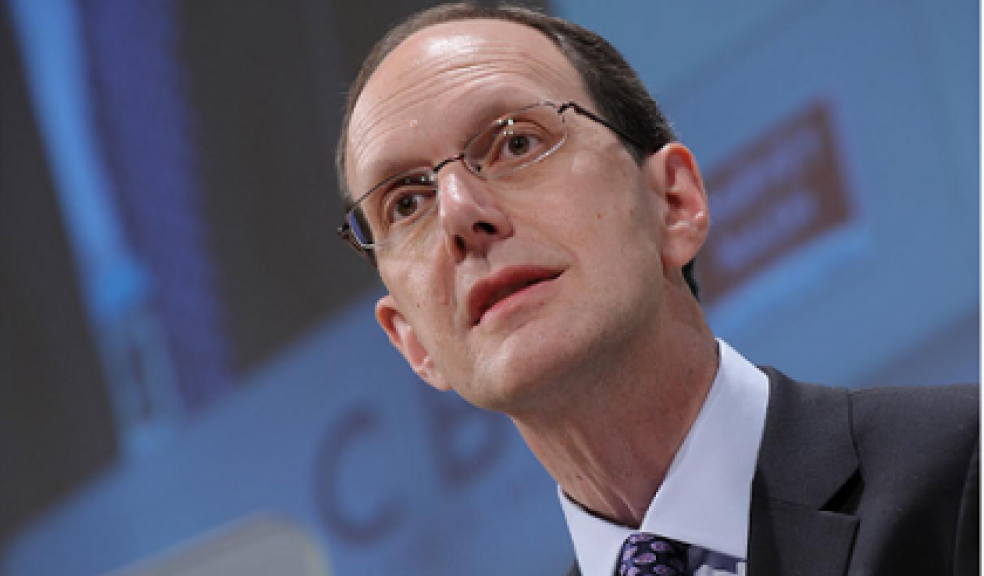
"Too many stuck in Minimum Wage" says CBI chief
The head of CBI, the UK’s main business lobby has called for a more “balanced” economic recovery as part of organisations’ annual New Year’s message today.
John Cridland, the CBI Director-General said that there were too many people still “stuck” in minimum wage jobs despite the economy improving.
He said: “The recovery is taking root and business leaders have a spring in their step compared to this time last year – but this is no time to rest on our laurels.
“Businesses must support employees in every part of the country to move up the career ladder, while also giving a helping hand to young people taking their first tentative steps into the world of work.
“As the financial situation of many firms begins to turn a corner, one of the biggest challenges facing businesses is to deliver growth that will mean better pay and more opportunities for all their employees after a prolonged squeeze.
“It’s really positive news that jobs are now being created fairly consistently across the UK. Encouragingly, this is also shaping up to be a full-time recovery with the majority of new jobs permanent.”
“The good news is that wages will pick up in the year ahead as growth beds down and productivity improves. But there are still far too many people stuck in Minimum Wage jobs without routes to progression – and that’s a serious challenge that businesses and the Government must address.”
Mr Cridland also called for businesses to do more to train employees, especially young people, to move up the career ladder.
Mr Cridland said: “The future of the UK economy is undoubtedly higher-value and higher-skill, so training is critical to helping people move onwards and upwards, and key to our national success, particularly when it comes to delivering an effective industrial strategy.
“We need to widen the gateways into higher-skilled work for far more people, including those already working, or those for whom a degree may not be the best option. Of course, that doesn’t mean the end of the traditional three-year degree and universities will continue to play an important role in delivering growth.
“However, at the moment, employers and potential students alike simply don’t have enough information on study options like higher apprenticeships and part-time higher education. That’s despite some excellent, well-established, programmes at companies like McDonald’s and Asda.
“With an election less than eighteen months away, politicians must remember that businesses are absolutely crucial to driving the recovery home, creating jobs and raising living standards for all. My message to the public is that businesses are up for that challenge and 2014 is the year we will deliver.”
Commenting on CBI Director General John Cridland’s New Year message, Shadow Business Secretary Chuka Umunna MP said: "John Cridland is right to say that we need to see growth which is better balanced and rewards being shared more fairly. Under David Cameron, prices have risen faster than wages in 41 out of 42 months leaving families struggling with a cost-of-living crisis.
"We need an economy which works for working people, which is why Labour would help firms to pay a living wage, reform the energy market so it works for consumers and business alike, as well as making sure people can get the skills they need, including through high-quality apprenticeships."
However employment specialists, the Chartered Institute of Personnel and Development (CIPD), have warned that there needs to be “a year in which productivity exceeds expectations” before wages can begin to increase.
Mark Beatson, CIPD Chief Economist, said: “This time last year we were talking about the UK’s ‘jobs enigma’. Since then, labour market performance has continued to exceed expectations, turning the UK labour market into a ‘jobs machine’.
“Employment growth looks set to continue at an impressive rate over the year to come. However, the downside is that UK productivity has yet to improve and remains below its pre-recession level.
“A lot of attention is being given to falling real wages and the UK’s ‘cost of living crisis’, for understandable reasons. But not enough attention is given to the main reason why this has happened – that productivity has fallen since 2008. Skills shortages in certain sectors may inflate wages for some, but if we are to create any realistic prospect of wages rising in real terms across the board, we need to improve productivity. Central to this is business and government acting together to improve the way people are managed, with more emphasis on working smarter and creating value. This involves tackling the crisis of trust in many organisations, as well as developing better ways of valuing and making active use of the skills and talents of our workforce.While 2012 and 2013 were years when employment exceeded expectations, if both UK competitiveness and real wages are to increase then 2014 needs to be a year in which productivity exceeds expectations.”
The CIPD has recently launched a major new research and engagement programme in collaboration with the UKCES, Investors in People, CMI, CIMA and the RSA to help employers understand how to measure the impact their people have on the performance of their organisation. For more information visit www.cipd.co.uk/valuingyourtalent











